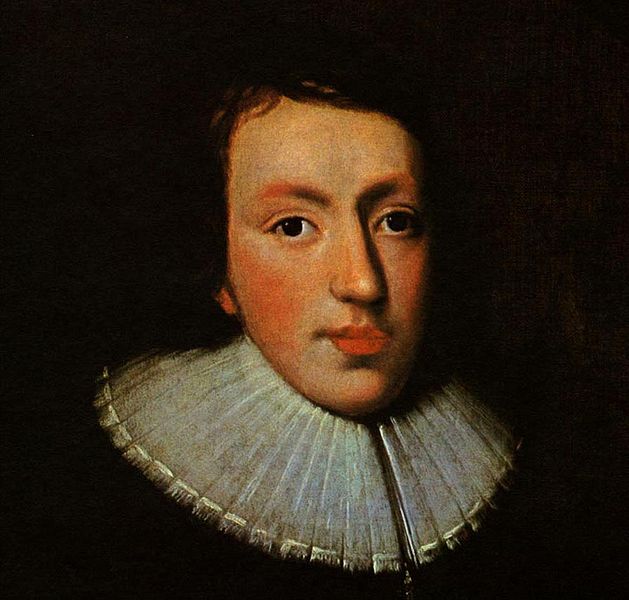December 9: John Milton
John Milton (1608)
It was also on this date, December 9, 1608, that the second greatest English poet, John Milton, was born in London. Best known for his 1667 epic poem Paradise Lost, Milton had turned away from study for the ministry and toward letters. He is known widely as a "great Christian poet," but his Paradise Lost is a brilliant failure: it attempts to rationalize the childish and melodramatic Christian story of devils, who refused blind worship of God, fighting for the souls of men. Catholic writer Hippolyte Taine remarked, as many have since, "The finest thing about this Paradise is its hell."
Reading beyond Paradise Lost, however, you are left with the impression that Milton was one of the strongest advocates for freedom of speech and thought in 1600s Europe, particularly for his Aeropagitica (1644). Two centuries later, the historian Thomas Macaulay noted from Milton's writings — especially De Doctrina Christiana — that he was "emancipated from the influence of authority," and authored "heterodox views on the nature of the Deity and the eternity of matter."
It was John Milton who said, "The greatest burden in the world is superstition, not only of ceremonies in the church, but of imaginary and scarecrow sins at home,"* and also, "Romanism is less a religion than a priestly tyranny armed with the spoils of civil power which, on the pretext of religion, it hath seized against the command of Christ himself."**
* Quoted in A Complete Collection of the Historical, Political, and Miscellaneous Works of John Milton, vol. 1, p. 277. ** John Milton, Treatise on Civil Power in Ecclesiastical Causes, 1659.
Originally posted December 2003.


